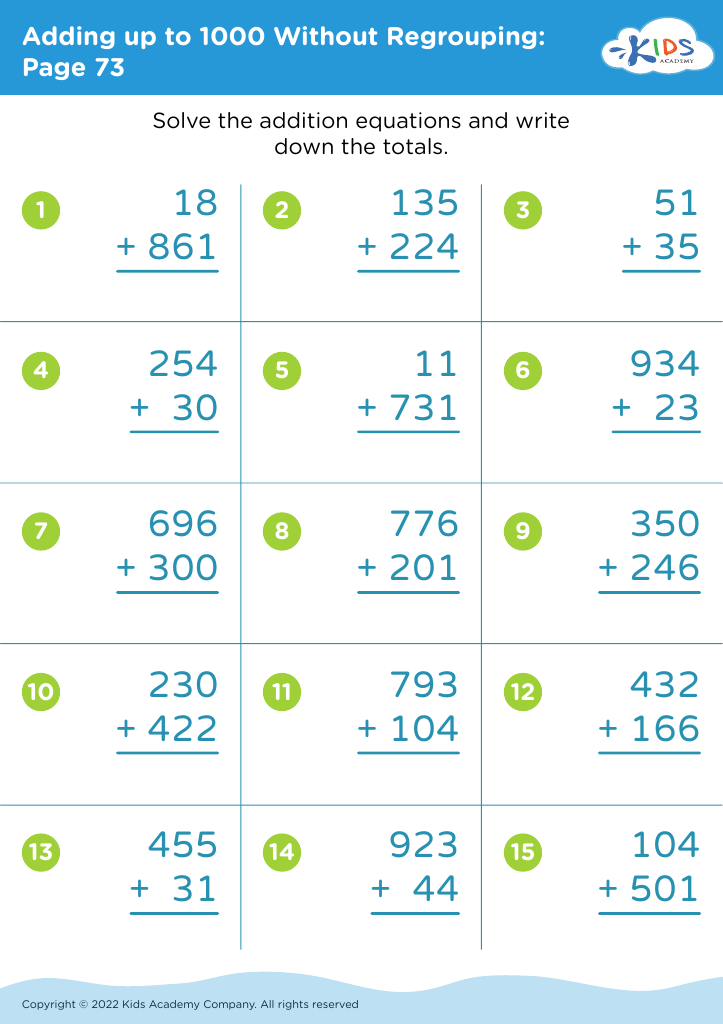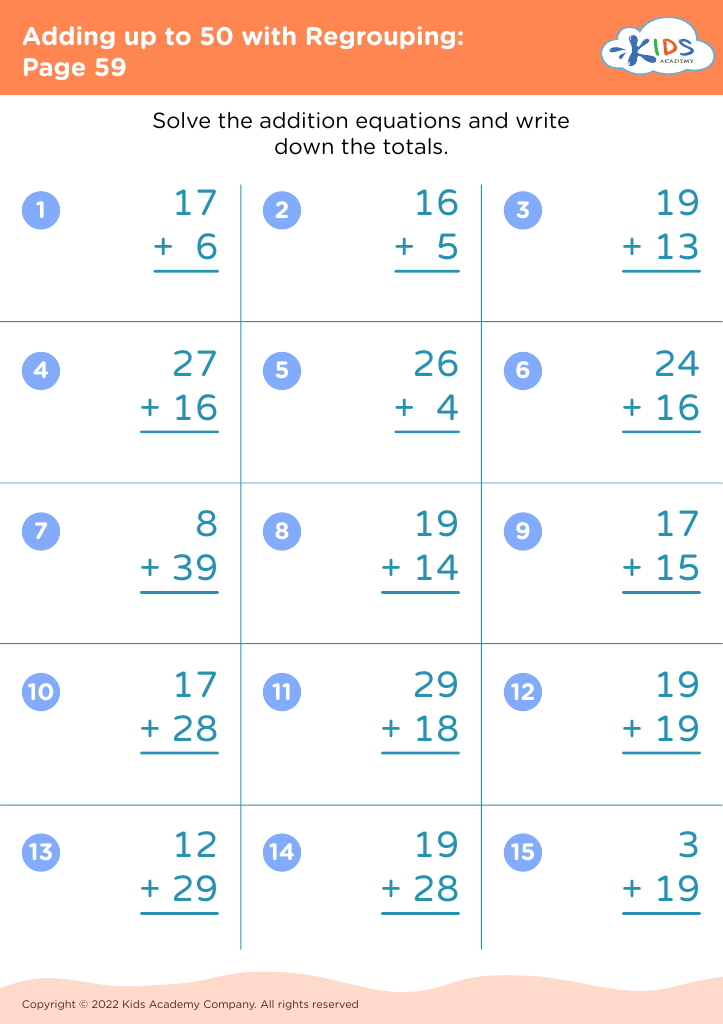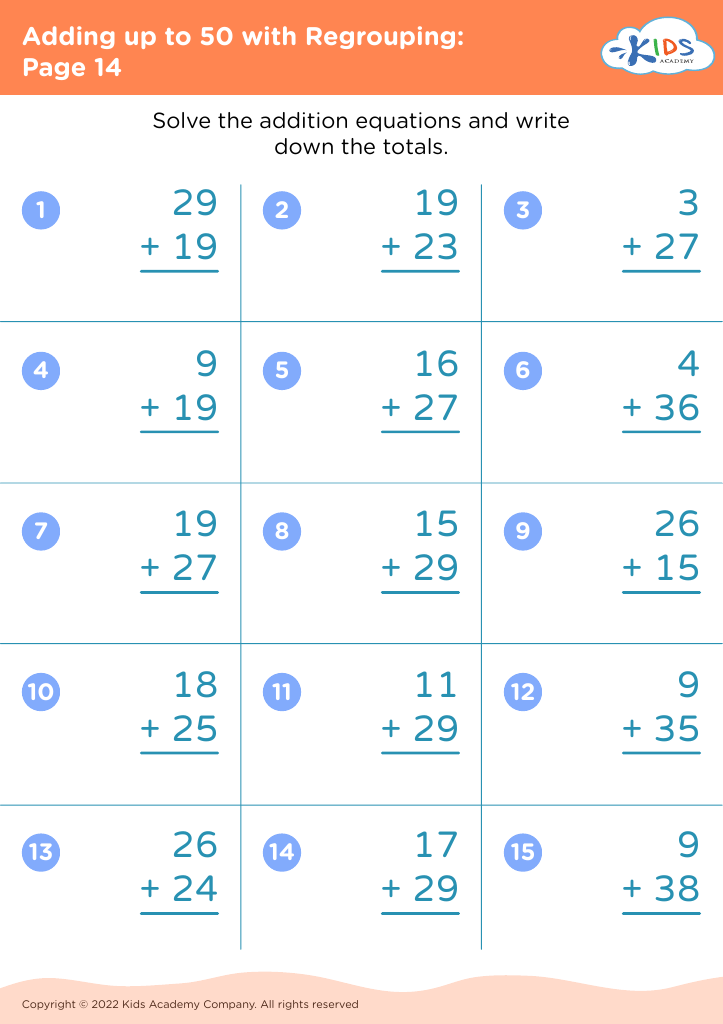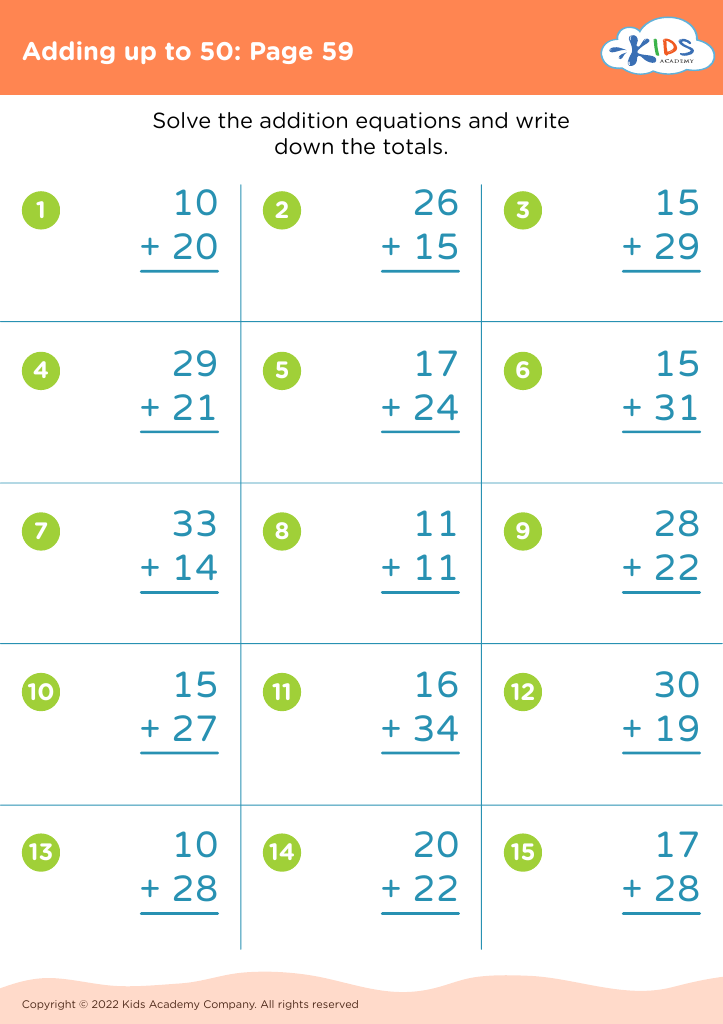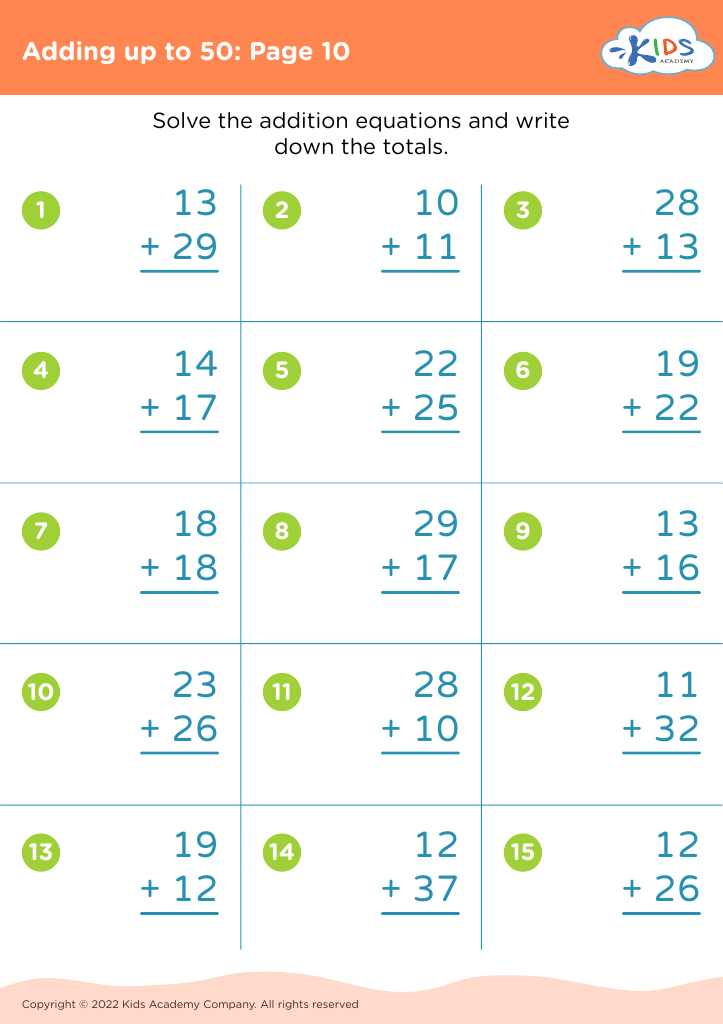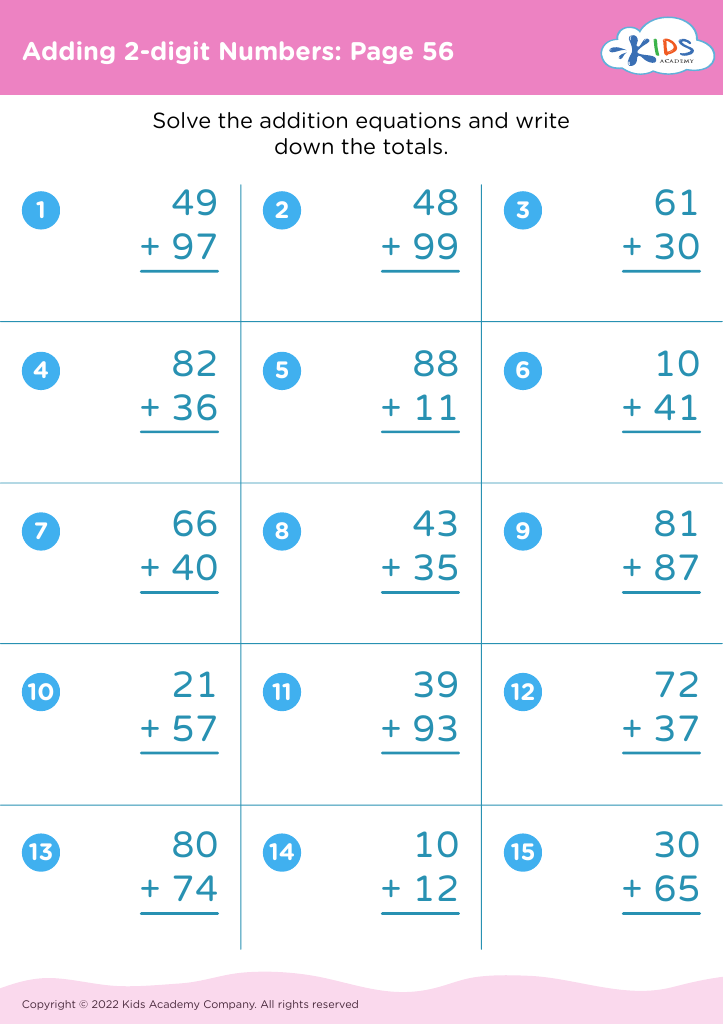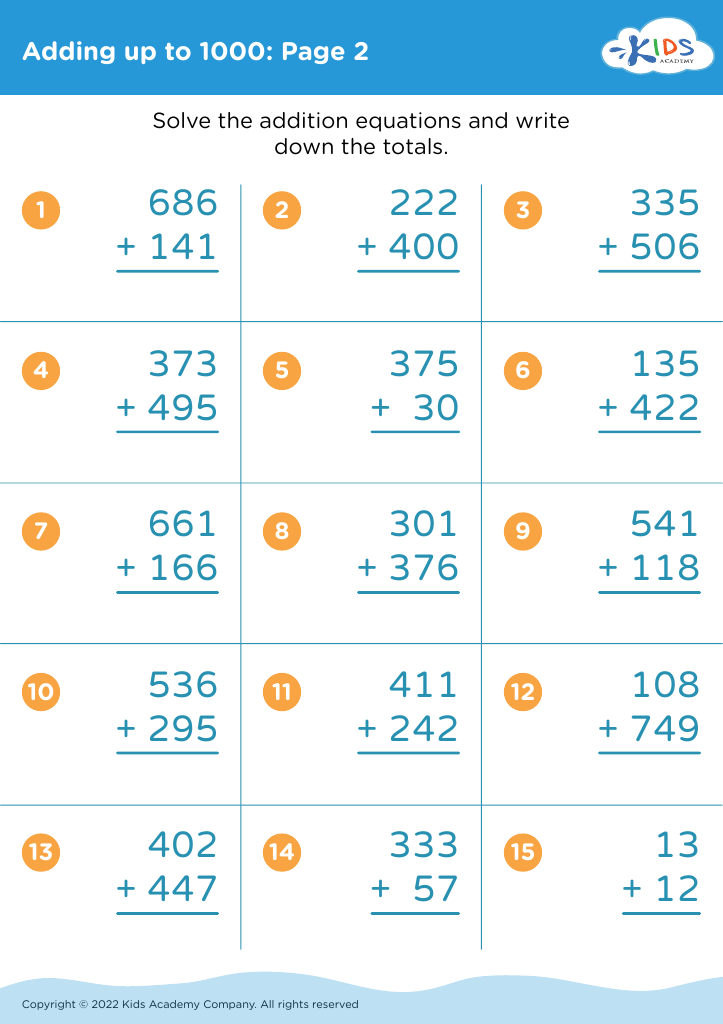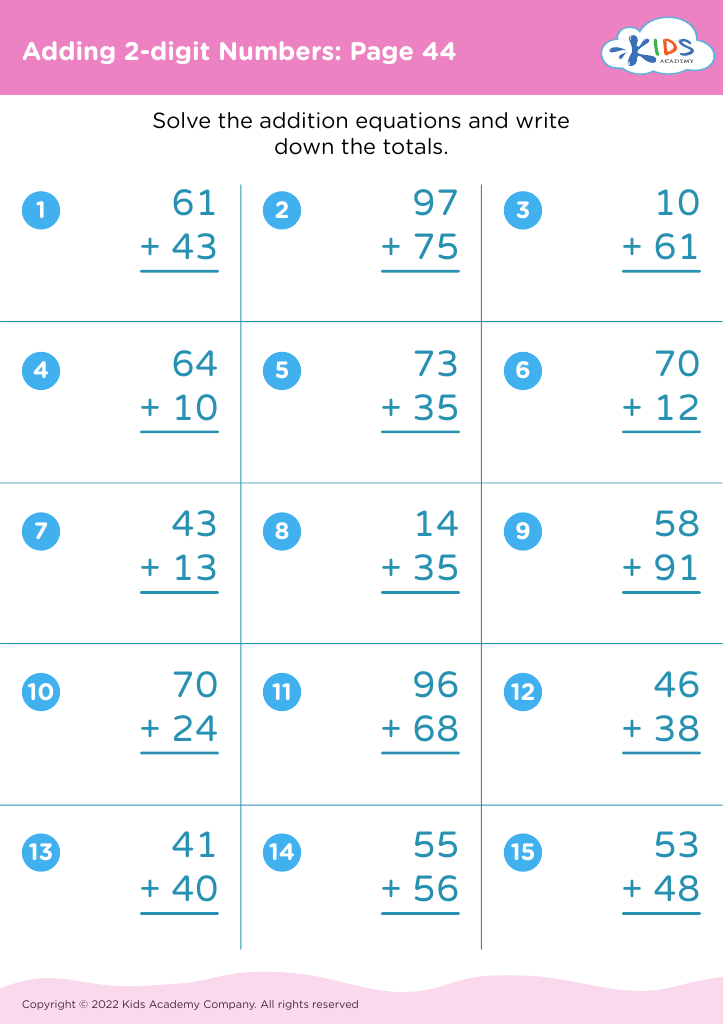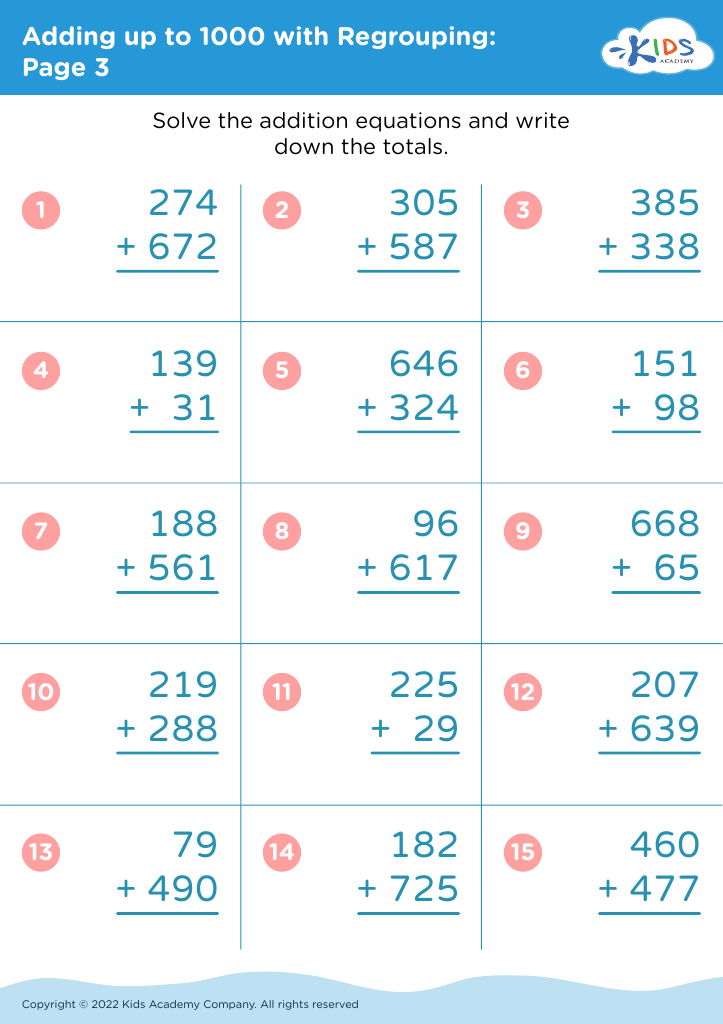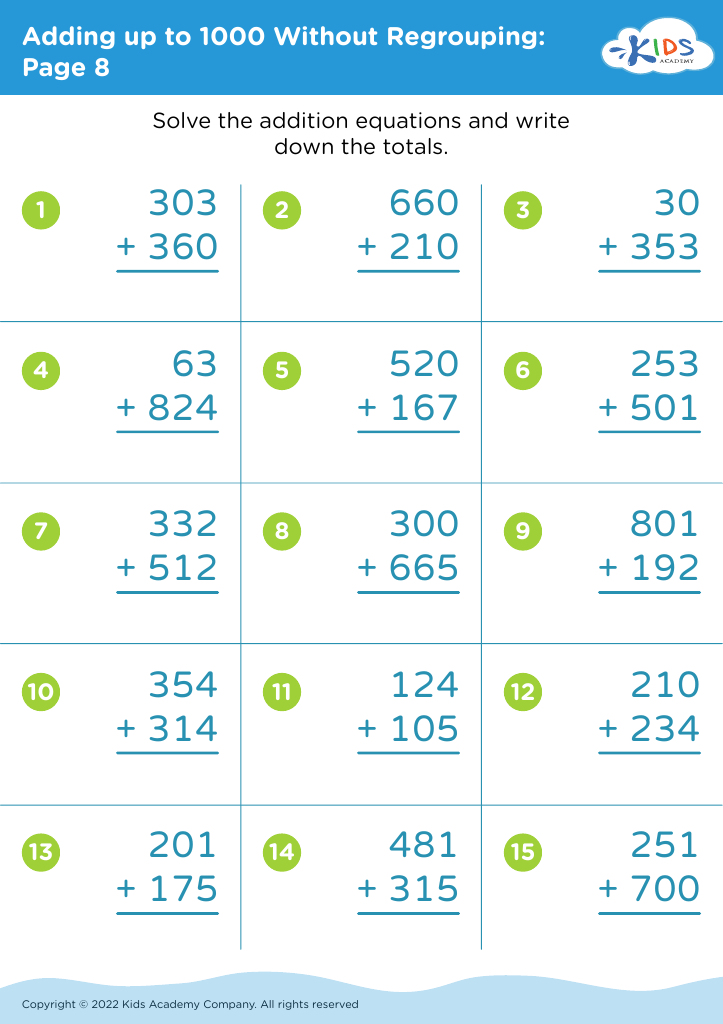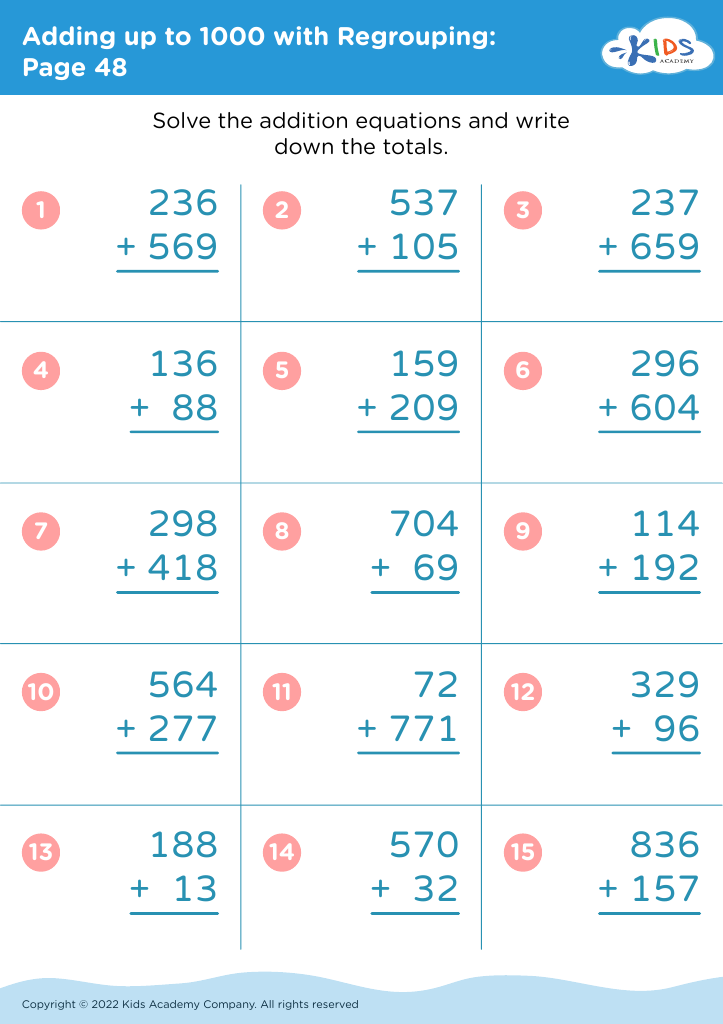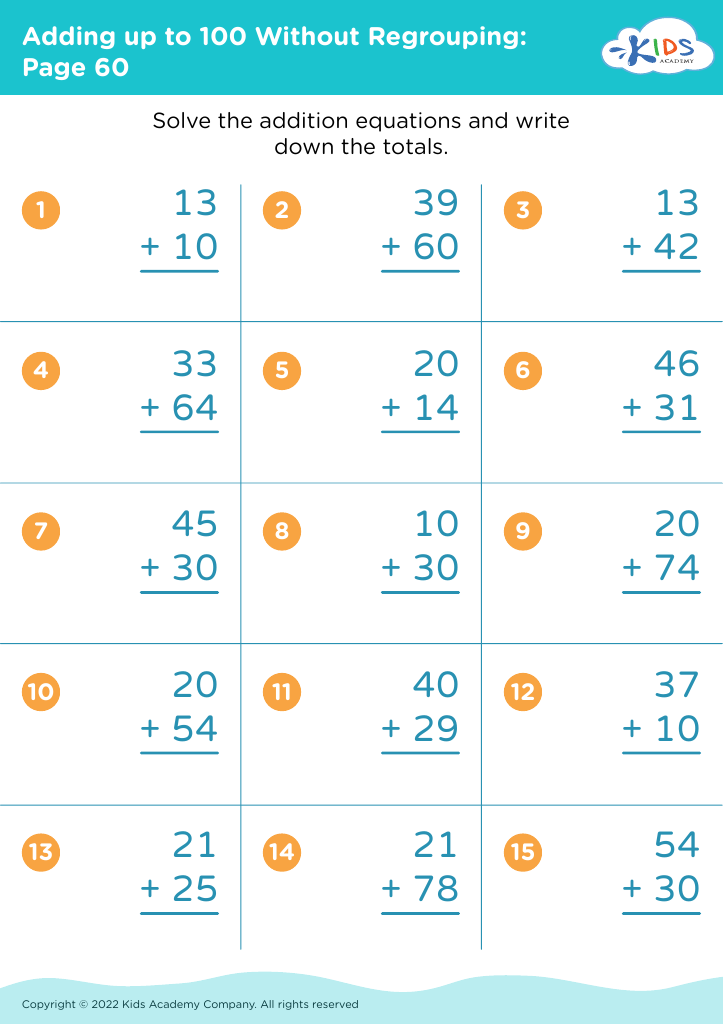Enhance comprehension Addition & Subtraction Worksheets for Ages 3-7
17 filtered results
-
From - To
Explore our "Enhance Comprehension Addition & Subtraction Worksheets" designed specifically for ages 3-7! These engaging worksheets help young learners master basic arithmetic while boosting their understanding of key concepts. By using colorful visuals and relatable scenarios, children can practice addition and subtraction in an interactive way, fostering a love for math. Our thoughtfully crafted tasks not only promote number recognition and problem-solving skills but also encourage critical thinking and comprehension. Ideal for home or classroom use, these worksheets support early childhood education and ensure a solid mathematical foundation for your child's future learning. Start their math journey today!
Enhancing comprehension in addition and subtraction for children aged 3-7 is crucial for several reasons. Firstly, this foundational mathematical skill supports cognitive development, fostering critical thinking and problem-solving abilities that extend beyond math. Early comprehension of these concepts builds confidence and a positive attitude towards learning. When children grasp these basics, they are more likely to approach future mathematical challenges with enthusiasm rather than fear.
Additionally, modern life requires a strong numerical foundation. Early math skills are directly linked to academic performance, especially in the STEM fields. Research shows that children who master essential math concepts early on tend to excel in school and later in their careers.
Furthermore, engaging with children in addition and subtraction can enhance parent-child or teacher-student relationships. It offers opportunities for interactive learning experiences, promoting social skills and cooperation.
Moreover, games and activities focused on these concepts can dilute the stress often associated with formal schooling, making learning fun and enjoyable. This ensures children are better equipped to navigate everyday situations, such as counting money or sharing, reinforcing practical life skills. By nurturing early comprehension of addition and subtraction, parents and teachers pave the way for a lifelong love of learning and provide children with essential tools for a successful future.

